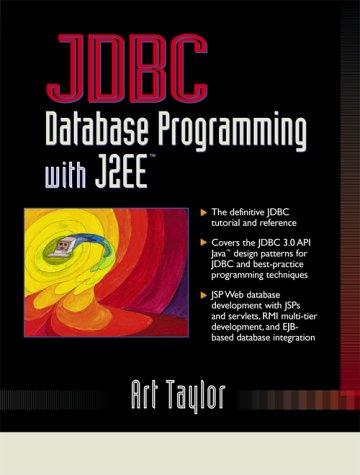Answered step by step
Verified Expert Solution
Question
1 Approved Answer
Your next programming assignment involves designing and building a basic library management system to demonstrate your skills in object - oriented programming and working with
Your next programming assignment involves designing and building a basic library management system to demonstrate your skills in objectoriented programming and working with classes.
For this assignment, you will be creating a Book class and a Library class. The Book class will model important book attributes like title, author, price, publish date, etc. Make sure to include a constructor, getters & setters, and a method to neatly display a book's details.
The Library class will act as the main library system for storing and managing books. Model the library shelves virtually using a D array, then implement methods like addBook lendBook returnBook searchByTitle and searchByAuthor that allow you to add new books to the shelves, mark a book as lent out or returned, and search for books by attributes. Also include a printBooks method to print all books in the library recursively, as well as findOldestBook to get the oldest book based on publish date.A Main driver class will tie together the whole management system by instantiating a Library, adding some Book objects, invoking lending and returning functionality, searching for books, and printing out full book listings. Demonstrate each piece working together as an integrated library system.
More details on the recursive printBooks method
The key idea is that the library shelves are modeled as a D array, which is like a matrix of rows and columns think of a spreadsheet
The printBooks method will print all books stored across all "shelves" in the library.It can approach this recursively by: Base case: If it is asked to print an empty shelf row or column count it simply returns without printing anything.
Recursive case: Iterate across each "spot" on the current shelf rowcolumn and check if a book object exists there.a If yes, print the book details by calling book.displayb If not, do nothing and check the next spot Recursive call: After finishing the current row, it makes a recursive call to print the NEXT shelf next row in D arrayThis way each shelf is processed recursively until all rows and columns are covered andall books across the virtual library are neatly printed out.
The key is using the rowcolumn structure of the D array along with recursion to traverse through and operate on each element systematically.
Step by Step Solution
There are 3 Steps involved in it
Step: 1

Get Instant Access to Expert-Tailored Solutions
See step-by-step solutions with expert insights and AI powered tools for academic success
Step: 2

Step: 3

Ace Your Homework with AI
Get the answers you need in no time with our AI-driven, step-by-step assistance
Get Started


